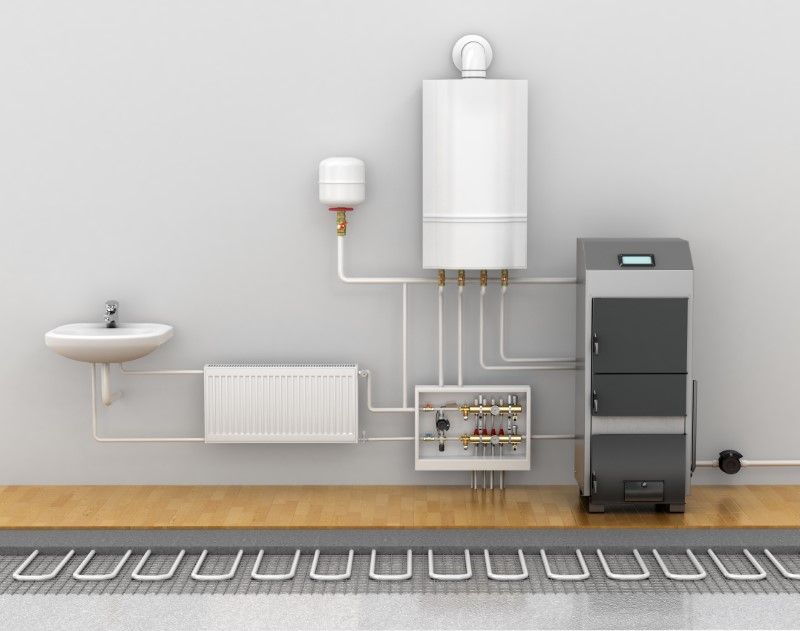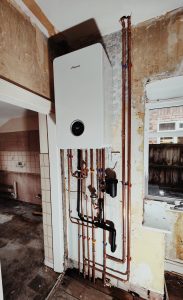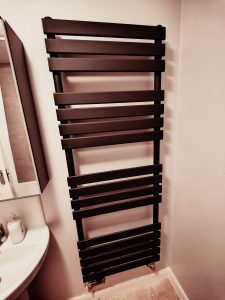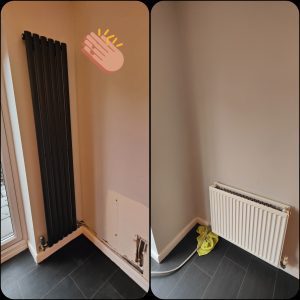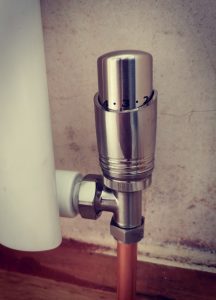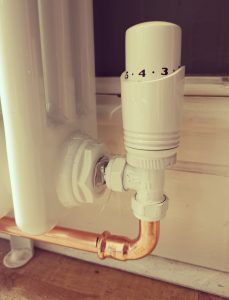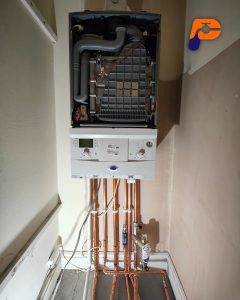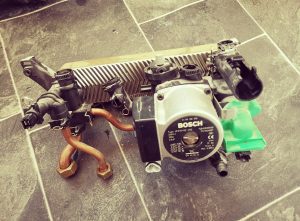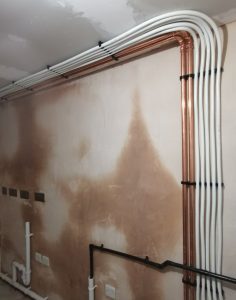Central Heating Installation Cost
Average Cost For Central Heating Installation
Are you wondering how much it will cost to install a new heating system in your home? The average cost of central heating is between 4000 – 8000£. The size of the property, rooms, type of boiler, and quantity of radiators will increase or decrease the final cost. At Plumbisimo, we help homeowners make informed decisions about their heating needs. Our team offers expert installation services tailored to fit individual requirements. We provide reliable solutions for needing a new boiler or a complete central heating system. Our skilled professionals ensure that every installation meets high standards. We want you to have a comfortable and warm home. We are dedicated to quality and customer satisfaction. Remember that we are here to assist you as you consider your options. We make the process simple and clear, providing the information you need.
Factors to Consider for Determining Central Heating Installation Cost
Several factors affect the cost of the central heating installation, and learning them helps you in budgeting. The first factor of concern is the type of system to use.
Boiler Type:
The type of boiler, which includes combi boilers, system boilers, and regular boilers, are the aspects that will determine your costs. A combi boiler is most appropriate for a house with many rooms or small households. A system boiler is preferable for more extensive properties because more bathrooms require additional hot water. Recognizing the differences will enable you to decide which best suits your home.
Quantity of Radiators:
It is worthy of note that the more radiators you have, the more the total installation cost will be. Every extra radiator contributes to the total expenditures on the radiators and to the costs of central heating installation. When considering a new heating system or extending the number of rooms, you must decide how many radiators you will install. This will guarantee heating in every area within your house.
Boiler Size:
Selection of an appropriate boiler set is crucial for optimum performance in the homes. For large houses with numerous radiator implementations, a stronger boiler is required. Smaller boilers are suitable for houses with small spaces and perhaps fewer rooms than large ones. Choosing the right size will go a long way in preventing further heater issues and keeping the house warm.
Hot Water Cylinder:
A system boiler normally needs an additional hot water storage tank because it may not produce enough hot water. This requirement can bring up the installation costs, which will be incorporated in the final cost estimate. If you want hot water for more than a single bath, it is wise to consult a specialist who will advise you.
Heating Smart Controls:
A smart thermostat is one example of advanced heating control that can enhance energy efficiency over time, leading to lower heating costs. These controls enable you to program your heating to correspond to your active time. This serves to foster efficient use of energy. However, the installation of these systems may make an addition to the initial costs. Always remember that we are comparing savings over some time to what we are paying today.
Pipework and Radiators:
Where you require new pipeworks and radiators, this will directly affect the overall costs. In a project that entails the installation of many radiators and many bathrooms, it might take some extra effort and raw materials. Consulting with your heating engineer about the current pipework situation can help you better understand what would be required to install the setup.
Fuel Type:
Which type to decide on, whether a gas boiler or an electric boiler, is another factor determining your overall costs. While electric heating systems are cheaper to install, they will cost you more money in the long run. This decision should also take into account the current supply of fuels and the cost of energy in the future.
Home Size and Layout:
Older or larger dwellings, whether you have a detached house or a bedroom house, all have a significant impact on choosing the right central heating system. Due to its complex design, a bed bungalow may contain fewer elements, reducing installation costs. More extensive areas require more radiators, and a larger boiler besides having multifaceted designs. The number of bedrooms precipitates the heating system demands and the work required for installation as well.
Understanding the Impact of Bedroom House Size on Central Heating Costs
The size of your bedroom house affects central heating installation prices. Larger homes with more rooms need a more powerful boiler to provide even heating. Bedroom properties with multiple bathrooms need systems to produce enough hot water. More radiators and radiator valves increase labor costs and plumber costs. Whether you need new boiler installations or upgrades, choosing the right system ensures better heating and lower heating bills.
The Role of Central Heating Boilers in Efficient Heating
Picking the right central heating boiler ensures smooth heating for your home. Combi boilers work well for small bedroom properties, while system boilers suit homes with multiple bathrooms. An efficient boiler lowers energy bills and uses less energy. Regular servicing prevents breakdowns and delays the need for a boiler upgrade. Mains gas is the most common fuel, but some homeowners use electric radiators or oil boilers. Whether you need new boiler installations or upgrades, hiring a central heating engineer ensures the job is done correctly.
Central Heating System Types
Selecting the correct central heating system will improve the efficiency and comfort with which your home is heated. Various types of systems have a different cost and advantages or disadvantages. This is why the right choice needs to be made, depending on the circumstances.
Combi Boiler:
A combi boiler is suitable for requiring central heating and hot water, without requiring a tank. It is most preferable for small houses, especially those with limited space. This configuration can potentially reduce aggregate installation costs while offering sufficient heating and hot water.
System Boiler:
A system boiler is suitable for homes with several bathrooms since it requires a hot water cylinder to operate. This type guarantees an effective hot water supply for many people in a given household. It means households can shower in the mornings and evenings as desired without the water going cold in between. It may be expensive in the first instance to implement, but its effectiveness translates to energy savings over time.
Regular Boiler:
A regular boiler needs a feed tank and hot water cylinder, but none is necessary for a combi boiler. It is prevalent, especially in most of the old model buildings that were constructed many years ago. This system is suitable for facilities that require a lot of heat input. It was mentioned that the installation costs can be higher because it requires additional parts.
Electric Heating Systems:
Other main types include electric heaters, which can be either radiators or storage heaters, a substitute for gas heating. These systems are convenient as they do not require gas lines, as is evident in most homes. However, they may cause high running costs. A household energy audit aims to ascertain whether electric heating would suit your household.
Biomass Boilers:
Biomass boilers apply a renewable energy source in the sense that they use wood pellets, for instance,e, in relation to heating. Heating systems of this nature are considered friendly to the environment; however, they are expensive to install compared to the common gas boilers. If you are interested in a long-term heating solution, this might be the ideal solution.
How Radiator Valves Affect Heating Control and Costs
Radiator valves, including thermostatic radiator valves, help control room temperatures. Adjusting valves can reduce heating bills by heating only the rooms in use. Using radiator valves with smart thermostats improves energy efficiency and keeps your home comfortable. Radiator valves also control water flow, which lowers energy use and costs. It is best to have a central heating engineer install valves to ensure they work well. Correct installation reduces the need for extra installation labor and keeps the system efficient.
Get Quality Services At Affordable Prices
At Plumbisimo, we know that determining the central heating installation prices can be somewhat challenging. The exact cost will vary depending on factors. These include the number of bedrooms in the home, the type of boiler, and even whether a boiler replacement is required. Our team of local heating engineers is ready to provide you with every necessary service.
We carry out the installation of radiator valves and thermostatic radiator valves and make sure your system is properly serviced. Whether you require a boiler replacement or intend to switch to a newer, more efficient model, we will assist in finding the best solution at the right cost.
Breakdown Of Central Heating Installation Prices
Type of Boiler:
The kind of boiler also significantly influences the central heating installation cost. For instance, There are many reasons why a gas boiler may be cheaper than electric heating. A combi boiler is popular because it is small and effective. It heats water on demand. A conventional boiler is capable of storing hot water. This means you will need a hot water cylinder. The odds of going with a combi boiler and a regular boiler influence the overall costs. A strong boiler will be useful when heating homes that are large.
Size of Home:
The amount of space in your home is one of the most significant factors affecting central heating installation costs. A bedroom house will have fewer radiators than a more spacious house far from the neighbors. A small home will require only one or two radiators since they are small. A large home might require having more than a single bath and several radiators might also be necessary. They all increase the cost of the overall system. In this case, the overall cost increases with an increased space that is required for construction. We estimate the construction of all types of homes with accurate measurements.
Number of Radiators:
The cost of central heating systems may vary depending on the number of radiators required. Radiators can be big or small and can have different designs as well. It is cheaper to use a single radiator rather than a bed house and have many of them installed in the house. The cost for the radiator installation is an addition to the overall installation costs. It is also possible to control heating using thermostatic radiator valves. We consult you as to the number of radiators required for your area. Our specialists can work out for you the value of this expression.
Heating Controls:
Another feature of a heating system is heating controls. These include smart thermostats and manual controls. Assistive technology such as smart thermostats can use less energy and cheaper heating and can even be utilized to monitor a certain amount of bills. These controls increase the installation cost since it is added to the overall cost of the installation. Simply, it is preferable to have good controls to incur the cost and benefit from the proper heating process. Modern heating controls help to improve comfort and reduce energy wastage and consumption.
Pipework Installation:
This central heating normally requires the installation of new pipework from one room to another, sometimes from one floor to the next. This new pipework runs from the boiler to the radiators. This can also be translated into additional expenditure of installation costs. Older buildings could require new pipework to be installed in order to connect to the most current standards. Pipework costs depend on how much pipework is required. We make sure all the installations are properly accredited to standard safety norms.
Labor Costs:
Labor costs are a considerable factor influencing the total expenditure towards installing central heating. Different heating engineers charge different prices. This is a function of the type of engineers used in projects and indeed, their level of skill and experience often vary across contractors and hence the prices. It is likely to find a fair price to compare the prices from several companies. The most important thing to consider is the qualifications of the engineers to be engaged. This will help avoid any technical problems that may be experienced while installing the system, and also to install the system properly.
Removal of Old Systems:
The removal costs must also be factored in if replacing an existing heating system. This involves removing old radiator and boiler systems. In our total installation cost, we incorporate this. This process may influence the time taken for the new installation process to be completed. It is, therefore, good to factor this when planning for the budgets.
Government Grants and Schemes:
There could always be government grants to support the installation of central heating though. Certain programs believe that they can reduce the total cost of qualified homes. We assist you in determining whether you meet the requirements to avail of such grants. It can thus help cut down on other expenses and bring the total expenses down. You should always check for local programs and benefits.
Mains Gas vs. Other Heating Options
Most homes use mains gas for central heating because it is cheaper and available. Some people choose electric heating systems or heating oil based on their needs. Electric radiators are easy to install but can raise energy bills. Heating oil systems need regular servicing to stay efficient. The labor and plumber costs will vary if you install a typical gas boiler or try other systems. Speaking with local heating engineers to find the best system for your budget is helpful.
Tips For Cost Saving
Compare Labour Costs for Better Deals
Saving on central heating installation costs starts with good planning. One way to reduce labor costs is by comparing quotes from different heating engineers. This helps you find fair installation labor rates. Installing your system during off-peak seasons, like summer, can also save money since fewer people need heating services.
Select the Right Boiler Size and Type
Choosing the right boiler for your home makes a big difference in overall costs. A 33kw boiler works well for homes with multiple bathrooms, but smaller homes may need a lower-capacity boiler. Picking the right size prevents overspending. It’s also good to check different boiler types. A combi boiler provides hot water on demand, while a system boiler needs a hot water cylinder, which adds to cylinder costs.
Minimize Component Costs with Smart Choices
Choosing the right components can help lower system component costs. Using thermostatic radiator valves gives you better control over room temperatures, saving on heating bills. Efficient radiators and smart thermostats can also keep energy use low. Though heat pumps may cost more upfront, they cut energy bills over time. Being smart with components keeps your costs under control.
Prepare Your Home to Reduce Installation Time
Getting your home ready before installation helps manage installation labour. Clearing space and making pipework accessible saves time and keeps costs down. Replacing all radiators at once can reduce radiator installation expenses by avoiding multiple visits from engineers.
Invest in an Efficient Boiler to Save Long-Term
Installing a high-efficiency boiler helps lower future heating costs. Gas boilers and biomass boilers come with different running costs, so choose carefully. A well-maintained boiler keeps energy use low and cuts down on repair needs. Regular servicing of your heating system also makes sure it works efficiently and keeps heating bills manageable.
Look for Government Grants and Incentives
Grants and incentives can lower your total installation cost. Some government programs help with boiler upgrades or switching to energy-efficient systems like heat pumps. These grants reduce upfront costs and make modern heating systems more affordable.
Optimize Heating Controls for Better Efficiency
Using good heating controls improves efficiency and saves money. A smart thermostat lets you manage your heating remotely, making it easy to set schedules. It ensures the heating system only runs when needed, which improves hot water production efficiency and reduces energy use.
Install Only the Necessary Radiators
Carefully planning the number of radiators in your home avoids unnecessary costs. Installing many radiators in areas you don’t use often raises expenses without real benefits. A well-planned system with the right number of radiators keeps labor costs and component costs under control. It ensures comfort without overspending.
FAQs
How much does it cost to install a central heating unit?
The cost of installing a central heating unit varies. The average cost depends on factors like boiler type and home size. A bedroom house typically has lower costs than larger homes. We provide quotes based on your specific needs.
Is central heating cheaper than electric?
In general, central heating is cheaper than electric heating. Gas prices are usually lower than electricity costs. This means you can save more with a central heating system. Our team can help you understand the costs.
Is electric central heating expensive to install?
Electric central heating can be more expensive to install than gas systems. Electric systems may also have higher running costs. We help you evaluate all options to find the best fit for your home.
Can I get a government grant to install central heating?
Yes, there are government grants available for central heating installation. These can help reduce the overall cost. We can assist you in finding out what grants you may qualify for. It is a good idea to explore these options.
Contact Us Today!
Looking to install or upgrade your central heating system? Plumbisimo provides trusted services to fit your needs for central heating installation. Our skilled engineers ensure every installation is safe and works smoothly. Call us now for a free quote. Reach us at 01925 222 777 or email info@plumbisimo.co.uk to explore your options and schedule a visit. We focus on quality service and help you choose the right heating solution for your home. Get in touch today and enjoy a warm, cozy space all year with Plumbisimo’s reliable heating services.

